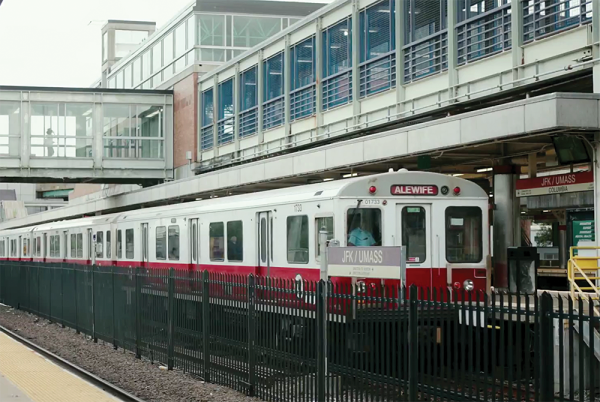The Ashmont branch of the MBTA Red Line will undergo construction throughout the month of April, raising significant concerns, particularly within Boston’s Haitian community, which is largely concentrated in the Dorchester and Mattapan neighborhoods. This closure, coming less than two years after major repairs in 2023, will severely impact the daily commutes of thousands of residents who rely on this line for work, school, and medical appointments.
Brian Kane, Executive Director of the MBTA Advisory Board, explained in an interview with WBUR Morning Edition the reasons behind this new interruption and the measures being taken to minimize disruptions.
Many passengers are questioning the necessity of this closure, as the Ashmont branch was previously shut down for an extended period in 2023 for track repairs. Kane acknowledges their frustration but insists that this work is essential.
“Last year’s repairs focused mainly on the tracks themselves. However, this time, we need to fix a diamond crossover— a crucial component that allows trains to switch tracks,” Kane explained.
The diamond crossover could not be repaired during previous work due to its complexity. According to Kane, this intervention is vital for ensuring smoother and safer operations in the long term.
Impact on Passengers Throughout April
- April 1-10: The Ashmont branch will be completely closed. The MBTA will provide replacement shuttle buses serving stations between JFK/UMass and Ashmont.
- April 11-30: A single-track operation will be in place, with shuttle trains running on only one section of the track.
Kane emphasizes that this new approach will significantly reduce costs associated with shuttle buses.
“The MBTA spends tens, even hundreds of millions of dollars, to provide shuttle bus services. By using shuttle trains and single-track operations, we will achieve significant savings,” he noted.
A Direct Impact on the Haitian Community
Dorchester and Mattapan have a large Haitian population, many of whom rely on the Ashmont branch for their daily commutes. This closure means longer travel times, more transfers, and increased commuting challenges.
Workers in hospitality, food service, and healthcare—fields where many Haitians are employed—will be especially affected.
“Many of our residents work in downtown Boston and depend on the Red Line every day. These disruptions make their lives much harder,” shared a Mattapan resident.
Travel Tips for Commuters
To minimize disruptions, consider the following recommendations:
✅ Plan Ahead: Travel times will be significantly longer, especially from April 1-10. Allow at least 30 to 45 extra minutes for your commute.
✅ Explore Alternative Routes:
- The Fairmount Commuter Rail Line may be a viable option for some passengers.
- Bus routes 22, 23, and 28 connect Mattapan and Dorchester to the Orange Line and can help navigate around the closures.
✅ Stay Updated: Follow MBTA service alerts online or via mobile notifications, as last-minute changes may occur.
✅ Avoid Peak Hours: If possible, travel outside rush hours (7-9 AM and 4-6 PM) to reduce delays and overcrowding on replacement buses.
More Closures Likely in the Future
This type of shutdown may become more frequent in the coming years. Kane explains that Boston’s transit system has suffered from decades of underinvestment, requiring ongoing maintenance and repairs.
“Imagine a car with a check engine light on for 40 years—that’s the current state of the MBTA’s infrastructure. We’re trying to catch up on decades of neglect, which means more work will be needed in the future,” Kane stated.
While MBTA officials acknowledge the frustration of passengers, they stress that these closures are necessary for long-term safety and reliability.
For Boston’s Haitian community, the April shutdown presents a major challenge, requiring patience and adaptation. Although alternative options are available, commuters should expect longer trips and plan accordingly.
The MBTA promises these improvements will enhance service quality, but passengers continue to wonder how much longer they will have to endure disruptions before seeing lasting benefits. Until then, staying informed and planning ahead will be key to navigating this difficult period.
This article is based on an interview conducted by Sharon Brody of WBUR with Brian Kane, Executive Director of the MBTA Advisory Board.







